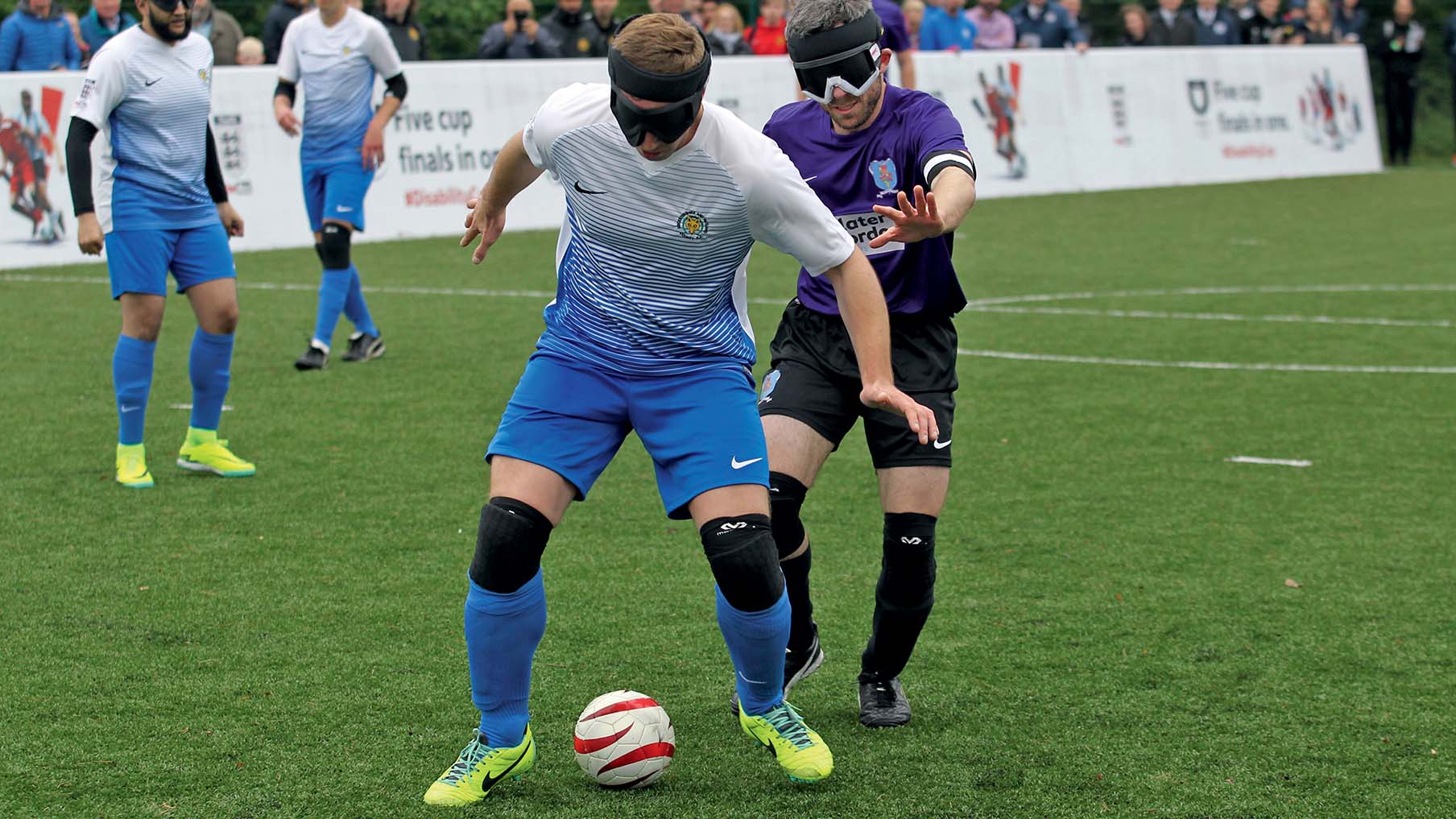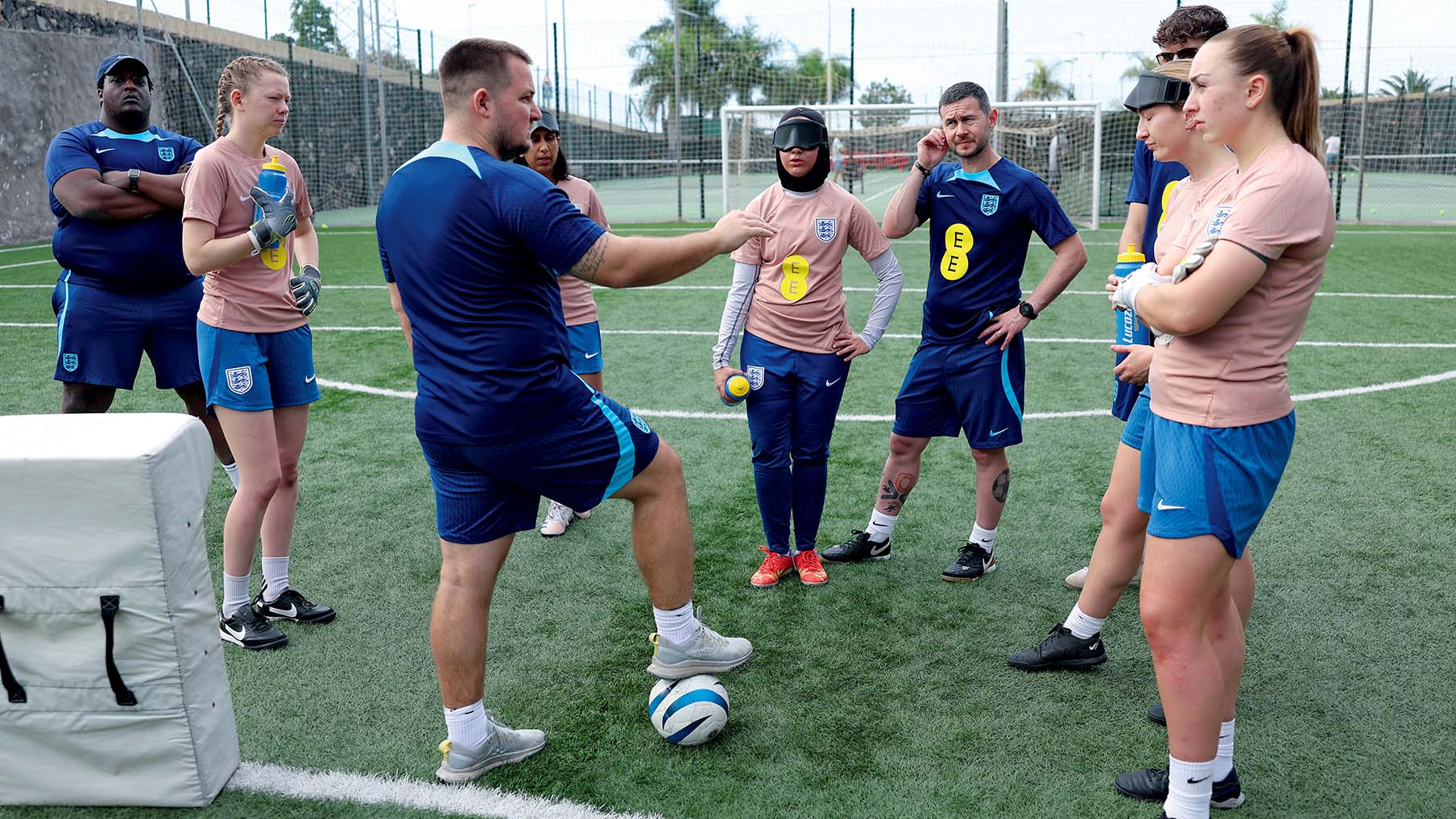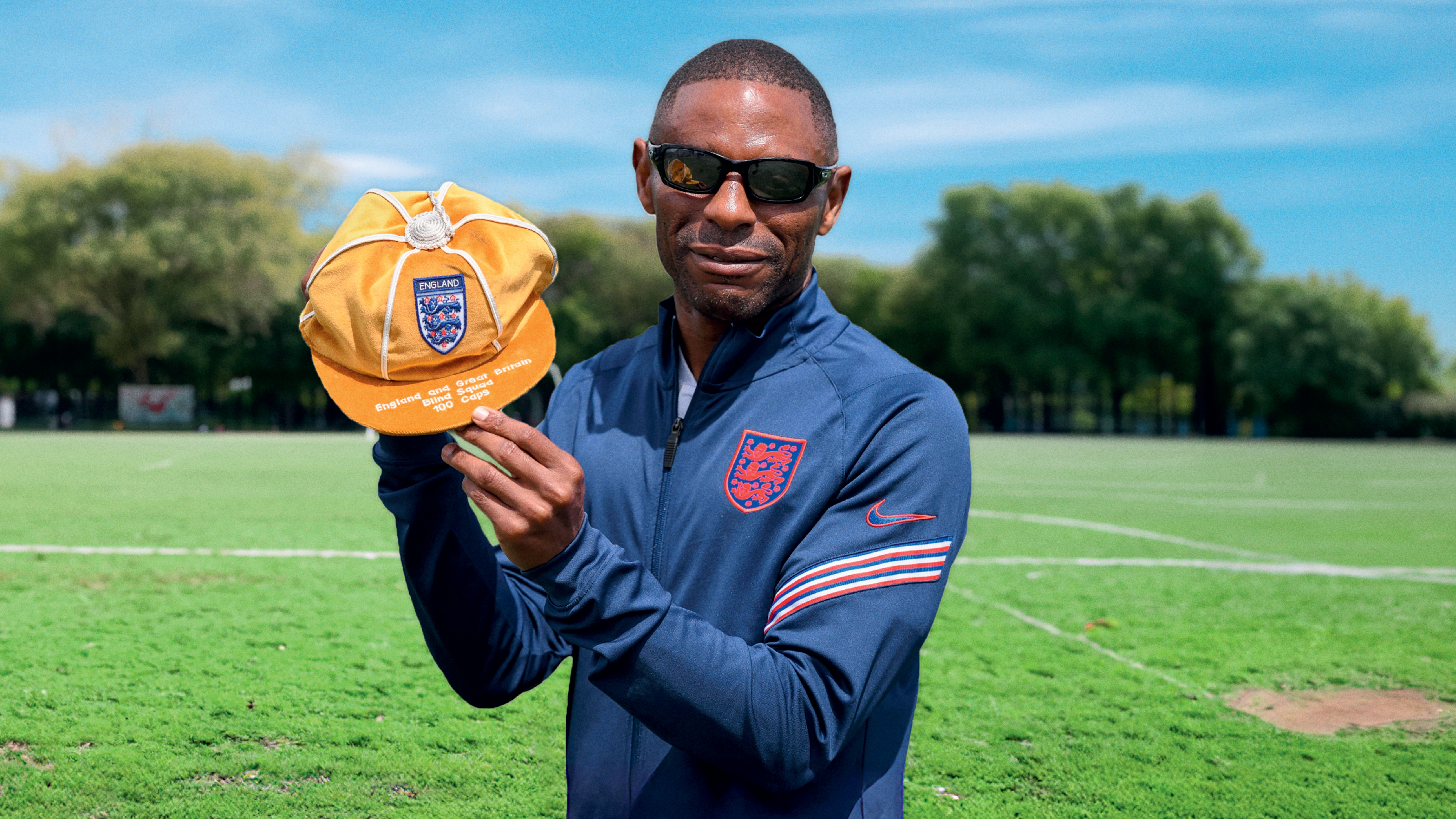“I started playing football at school, with friends. I loved playing and couldn’t get enough. Sometimes we didn’t even have a ball, just a rolled-up newspaper held together with sticky tape. We would play before and after school.
“Even though my sight was impaired, I was never the last kid to be chosen. I was naturally athletic, agile and quick. I became interested in blind football after graduating from Sheffield University, in maths, and going on to work as an applications developer for an IT company. I spent evenings in the gym and weekends playing football in a national league for blind players.
“Blind football is usually five or six-a-side, and played in an enclosed space, so you play off the walls. The football has ball bearings inside so you can hear it, and each team has two guides to give instructions; one is at the side of the pitch and another behind the goal. The goalkeeper is sighted or partially sighted.

Game changer
“I was spotted by an England scout and went from there. The hardest part was having to play with a mask on.
“Up until then, I had been able to rely on my partial sight. But playing with a mask in the total dark was a real game changer. I played awful in my England debut and the coach subbed me. That’s when I realised I had to prepare. I used that time to get up to speed on the technical skills I needed to succeed. I learnt to rely more on my hearing.
“One of the proudest moments of my England career was being given the captain’s armband. I had been on the team for six years, but I wasn’t a vocal player. But I put a lot of effort in so I think that’s why I was chosen to lead the team.
“I debuted for England in 1996, and picked up medals in four Word Cups and six consecutive European Championships, before helping the team qualify for Athens Paralympics in 2004, and Beijing in 2008.
“But the sport’s governing bodies in Scotland, Wales and Northern Ireland wouldn’t sanction an England Team [to play as Team] GB, for Athens or Beijing, so we didn’t get to compete, but I am really proud of all that I achieved. "Instead, I competed in judo at Beijing, and returned to football for Team GB at the 2012 London Games.

Get lost in the sport
“I encourage anyone to take part in blind football or any sport. When you’re playing, you're in the moment. You don’t have to think about what you are going through, it’s all about doing what you have to in that instant. Sport is the best antidepressant.
“Although I don’t play, I am a bit of a sounding board for younger players. Team GB did not qualify for Rio, Tokyo or Paris, but hopefully they will for Los Angeles in 2028. There are more than 60 national teams now, so competition is tough.
“I still love sport. For my 50th birthday last year, I entered the Yorkshire Marathon, which I ran in three hours, 42 seconds. I'm really proud of that.
“I now work as a motivational speaker, going to schools, colleges and anywhere involved in learning and development to use my story to inspire people to overcome adversity. Sport really helped me, and it can play a vital role in developing character, leadership skills and teamwork.”
HOW TO GET INVOLVED
- Contact your local county football association to see if it runs a blind or partially sighted football team. You can find out more by visiting the England Football website.
- Visit the FA website. The site explains the rules of the game and who can take part.
ABOUT DARREN
Darren was diagnosed with a rare eye disease at one year old and lost his sight completely by his 20s. He became England men’s most-capped male blind football player, having represented the country on 157 occasions.





